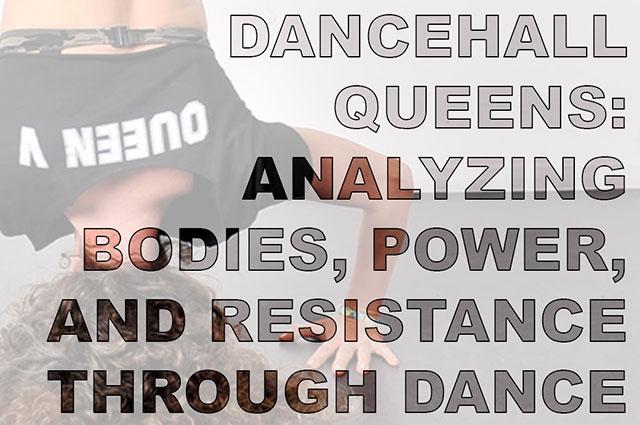Dancehall Queens: Analyzing Bodies, Power, and Resistance Through Dance

Etkins is a PhD Candidate at Harvard T.H. Chan School of Public Health, where her research examines mental health in marginalized populations. She found the ExCollege teaching format well-suited for her course on Dancehall with the class acting as a space to center and celebrate Black Jamaican women and their resistive efforts. Having grown up in a Guyanese household within a Caribbean diasporic neighborhood in Brooklyn, Etkins shared that Dancehall and Soca — another genre of music that originated in the Caribbean — were significant in her upbringing. As a dancer, she became even more enamored with Dancehall, which gave her a sense of community, connection, and grounding.
Etkins has made Dancehall Queens a multimedia course teaching students through music videos, lyrics, and “dancing from the Dancehall Queens themselves to center their voices and perspectives.” In explaining the multimedia format, Etkins expressed that “for many Black and Brown communities, their voices have been historically left out of academia because their forms of knowledge are considered ‘informal’ or ‘unconventional.’” Thus, she felt it invaluable to incorporate different modes of learning into the course.
Students even got the chance to take part in socially-distanced dance workshops, experiencing some of the topics explored in the course through physical movement. Etkins emphasized that “knowledge production” isn’t always easily translated into words, and that physical movement to embody an idea or concept is crucial.
The first occurred in October with special guest SmallieMichelle, who has won several Dancehall Queen competitions. The second workshop was held in November, led by Etkins herself, who noted that this was centered around “re-scripting movements and thinking through different lenses to read bodily movements, particularly when sexual readings are often projected onto Black bodies dancing.”
Reflecting back, Etkins also shared, “Students said that they loved SmallieMichelle's energy. For many, this was their first time dancing to Dancehall, but they all said that they felt super ‘free’ and ‘restored’ from the workshop and that it was very needed in the middle of exam week. They noted that they didn't know what to expect and felt nervous at first after seeing videos of Dancehall Queens throughout the semester, but after the warm-up all the nerves were gone and they were just going off the energy of the instructor and the room.”
“I knew that personally, and from stories of friends in my dance group, that there were tremendous changes in confidence and reclamation of bodily agency while dancing to Dancehall. I wanted to make sure that these resistive and liberative or healing aspects of Dancehall were at the forefront of our conversations and framed how we understood the role of Dancehall Queens.”
With COVID-19 restrictions, the format of Dancehall Queens underwent some changes coming into the fall semester. Etkins adjusted the course so that it primarily takes place over Zoom, with only the dance workshops taking place in-person and in accordance with Tufts policies. Luckily, this transition has been successful, with Zoom classes maintaining the engaging and participatory format expected in ExCollege courses.
However, Etkins did share the many difficulties that this semester brings,“with COVID-19 health concerns, constant threats of police violence against Black people,” and with the looming presence of the 2020 presidential election, students and faculty “felt exhausted physically, mentally, and emotionally.” With recognition of these challenging times, Etkins stressed the importance of flexibility, compassion, and empathy towards those around us.
She hopes that students “see the labor and work of Black Jamaican women who are Dancehall Queens in paving sites for resistance,” and to critically analyze the work that needs, and is being done, to make Dancehall a liberating space for all identities, “particularly those at the margins of Jamaican society.”
Written by Grace Prendergast, Class of 2024
Published on November 30, 2020